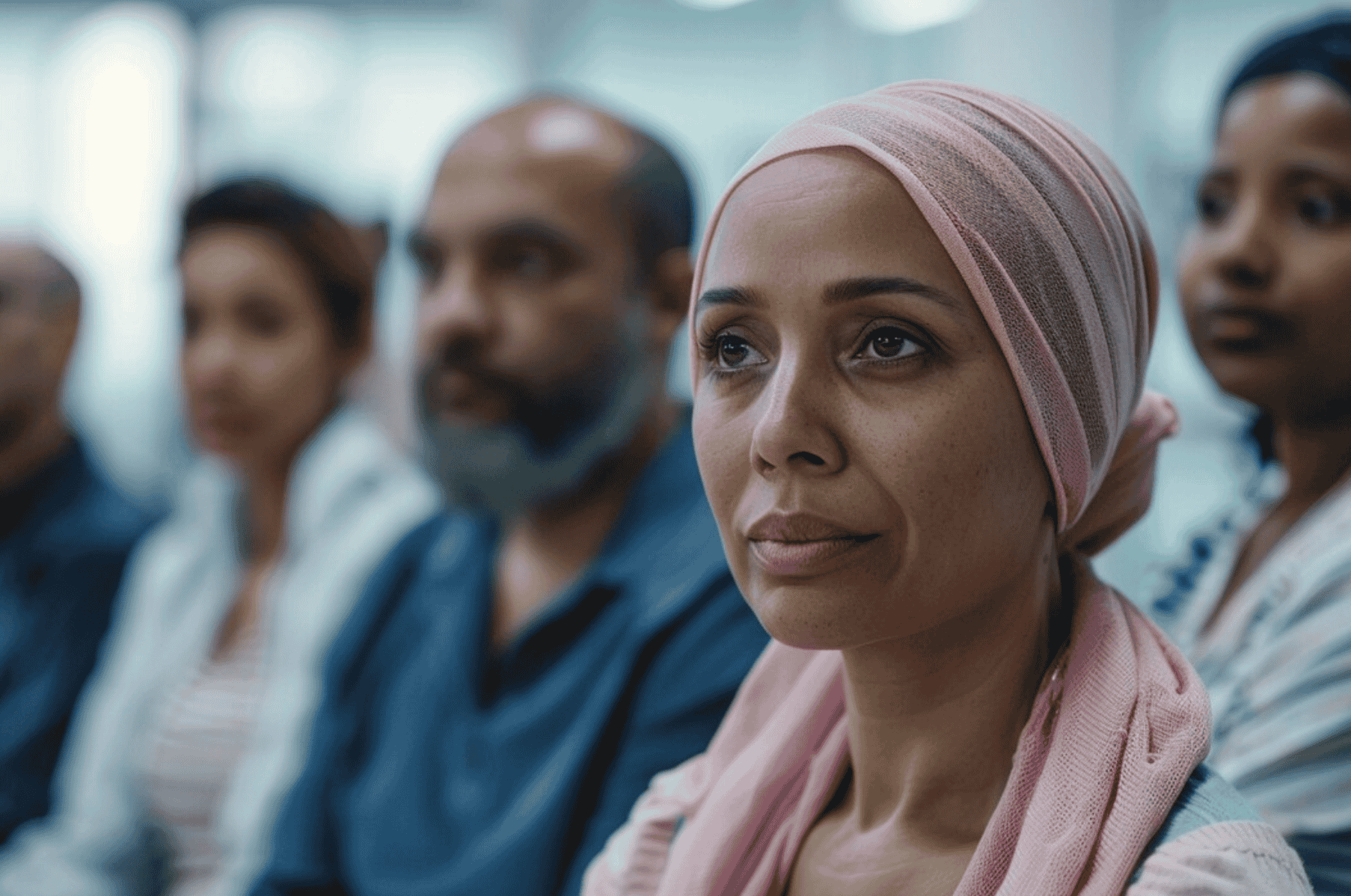Cancer care in India has made significant strides in medical advancements, but the socioeconomic and psychological burdens on patients and their families remain overwhelming. Insights from recent projects at NuSocia emphasize that combating cancer effectively requires addressing the non-medical challenges patients face—such as financial stress, societal stigma, and disruptions to daily life
The Need for Subsidization Beyond Treatment Costs
While the cost of cancer treatment is often in focus, the ancillary expenses—such as transportation, lodging, nutrition, and caregiver support—can be equally overwhelming. Many patients travel long distances to urban centers for treatment, incurring heavy expenses for accommodation and daily sustenance. These supplementary costs often account for more than 40% of the total financial burden on low-income families.
For instance, a family from rural Maharashtra had to relocate to Mumbai when their 17-year-old son was diagnosed with cancer. The treatment was expected to take at least nine months, forcing them to shut their village grocery shop and move to the city. This not only led to a complete loss of income but also presented significant challenges in finding temporary work while caring for their son in the hospital.
To alleviate these pressures, subsidizing ancillary costs or providing support mechanisms—such as patient guesthouses near hospitals, travel allowances, and nutritional aid—could significantly reduce the strain on families and improve treatment adherence.
The Weight of Social Taboos
In India, cancer is not just a medical condition; it carries a heavy societal stigma. Misconceptions about the disease being contagious or a “death sentence” continue to prevail, isolating patients and their families. Women, in particular, face unique challenges—breast and cervical cancers often go undiagnosed or untreated due to embarrassment or fear of judgment.
In one case, parents of children in an urban locality prohibited their kids from playing with a child diagnosed with cancer, fearing it was infectious. Even extended family members distanced themselves, assuming cancer was both contagious and terminal.
Addressing these taboos requires more than just awareness campaigns. It calls for sustained community engagement, peer support networks, and leveraging local leaders to foster dialogue. Empowering survivors to share their stories can also be a powerful tool in breaking the cycle of silence and stigma.
Interruptions in Daily Life
Cancer doesn’t only affect patients’ health—it disrupts their entire way of life. Many breadwinners struggle to maintain their jobs due to frequent hospital visits and recovery periods, leading to financial instability. Children of cancer patients, or those diagnosed themselves, often miss school for extended periods, forcing them to repeat grades or abandon their education altogether.
Take the example of a grocery shop owner who had to relocate to Mumbai for his son’s treatment. With no income from the shop and little opportunity to find work in the city while supporting his son in the hospital, the family’s financial and emotional stress became unbearable.
Implementing support systems—like flexible employment policies for caregivers, scholarships for children of patients, and temporary education facilities near treatment centers—can help families manage these disruptions more effectively.
Psychological and Emotional Challenges
The emotional toll of cancer is profound, affecting both patients and caregivers. Depression, anxiety, and feelings of helplessness are common but often go unaddressed due to limited access to mental health resources. Caregivers, often family members, face burnout while juggling responsibilities, yet their needs are rarely prioritized in cancer care frameworks.
Including psychological counseling and emotional support groups as part of routine cancer care can significantly enhance well-being. Caregiver support networks could provide guidance, emotional relief, and resources to ease their burden.
Community and Policy Solutions
To make cancer care truly holistic, a multi-pronged approach is essential:
- Policy Initiatives: Governments and NGOs should extend insurance schemes to cover ancillary costs and mental health services.
- Community Support: Localized cancer care centers and mobile clinics can reduce the burden of travel, while community volunteers can offer logistical support.
- Awareness Drives: Sustained efforts to educate communities about early detection, myths, and emotional resilience are crucial.
- Employment Solutions: Training programs for patients and caregivers can offer alternative livelihoods during and after treatment.
Conclusion
The battle against cancer extends beyond medical interventions; it encompasses the day-to-day realities of those affected. Addressing hidden costs, challenging societal taboos, and creating support structures are essential to making cancer care truly effective. Ultimately, cancer care is not just about prolonging life—it’s about preserving dignity, enabling hope, and ensuring that patients and their families can navigate this journey with resilience and support.
By recognizing and addressing these overlooked challenges, we can move closer to a future where cancer care is truly comprehensive and compassionate.




